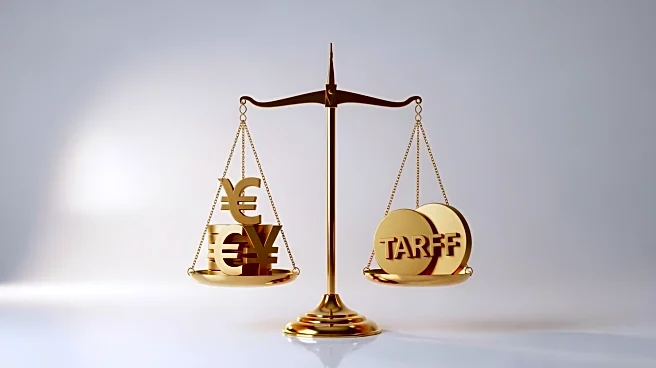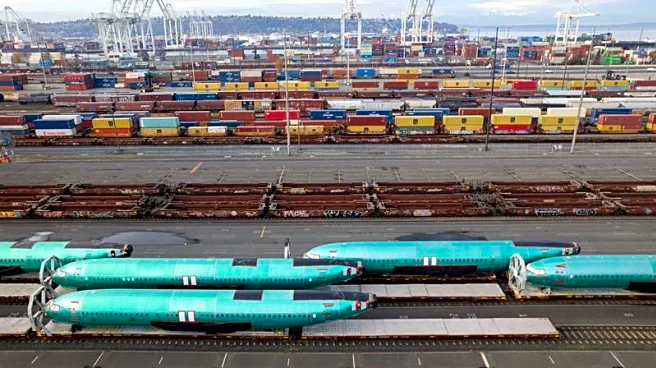What's Happening?
President Trump has proposed using revenue from tariffs to distribute $2,000 checks to Americans, excluding high-income individuals. This idea, reminiscent of pandemic-era relief checks, aims to provide
immediate financial relief to citizens. However, experts warn that such a move could lead to inflationary pressures. The increased cash flow could boost consumer demand, potentially driving up prices. Additionally, the tariffs themselves may raise the cost of imports, further contributing to inflation. This proposal comes at a time when the Federal Reserve is focused on managing interest rates to control inflation, and any significant cash injection could complicate these efforts.
Why It's Important?
The proposal to use tariff revenue for direct payments could have significant economic implications. While it may offer short-term financial relief to many Americans, the potential for increased inflation could negate these benefits. Higher prices for goods and services could erode purchasing power, impacting consumers negatively. Furthermore, the proposal could affect the Federal Reserve's monetary policy, possibly leading to interest rate hikes if inflation persists. This could increase borrowing costs for consumers and businesses, affecting economic growth. The plan also raises questions about fiscal responsibility, as it could impact efforts to address the national debt.
What's Next?
For President Trump's proposal to materialize, it would require approval from Congress, which is currently divided. The ongoing government shutdown adds another layer of complexity, as it highlights the challenges in reaching bipartisan agreements. If the proposal gains traction, it could lead to debates on fiscal policy and the role of tariffs in economic strategy. Stakeholders, including political leaders and economists, will likely weigh in on the potential benefits and drawbacks. The outcome of these discussions could shape future economic policies and influence the political landscape.











